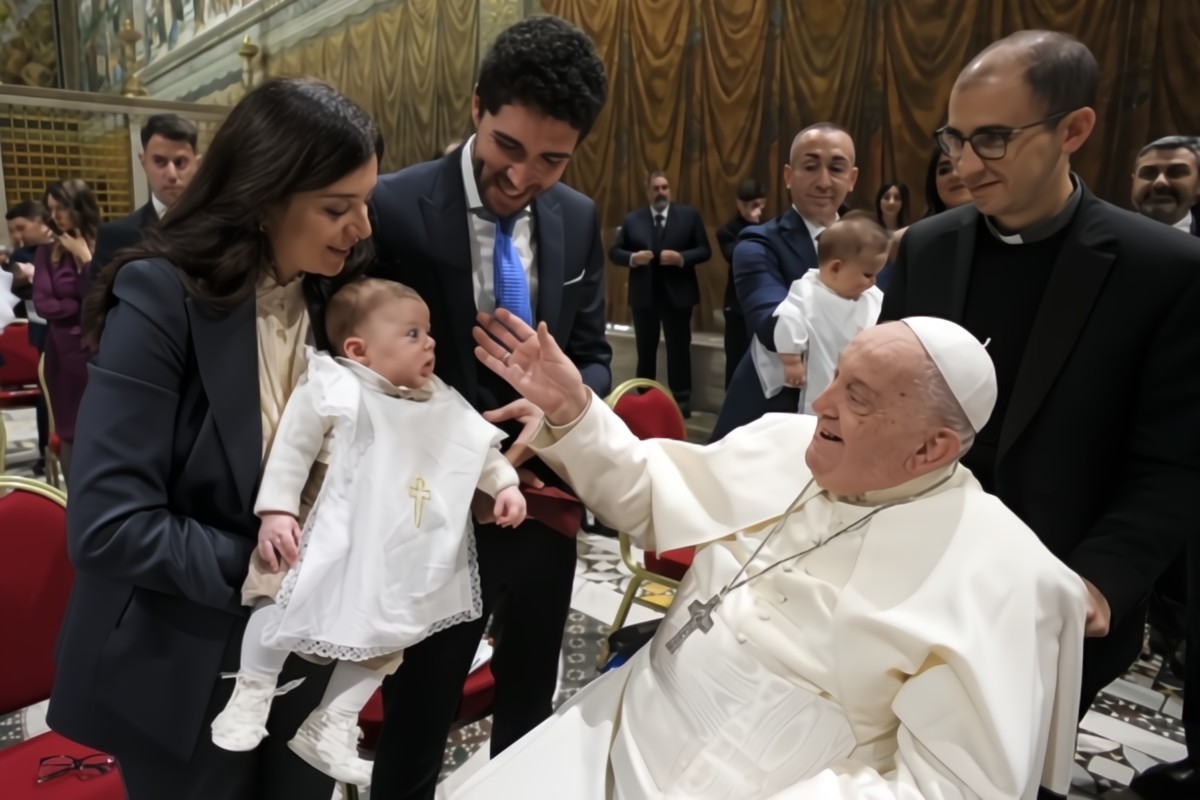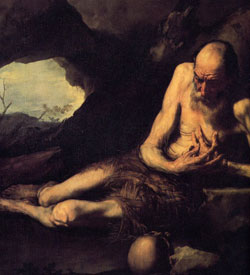We ask you, urgently: don’t scroll past this
Dear readers, Catholic Online was de-platformed by Shopify for our pro-life beliefs. They shut down our Catholic Online, Catholic Online School, Prayer Candles, and Catholic Online Learning Resources—essential faith tools serving over 1.4 million students and millions of families worldwide. Our founders, now in their 70's, just gave their entire life savings to protect this mission. But fewer than 2% of readers donate. If everyone gave just $5, the cost of a coffee, we could rebuild stronger and keep Catholic education free for all. Stand with us in faith. Thank you.Help Now >
Pope: Faith is the Key to Understanding the Bible
FREE Catholic Classes
It is the common desire that sacred Scripture become in this secularized world not only the soul of theology but also the source of spirituality.
Highlights
VATICAN CITY (Zenit.org) - The historical-critical method of interpreting biblical texts is legitimate and necessary, but it must not be forgotten that the key to the interpretation of Scripture is the faith of the Church, says Benedict XVI.
"If exegesis also wishes to be theology," he told the Pontifical Biblical Institute today, "it must acknowledge that the faith of the Church is that form of 'sim-patia' without which the Bible remains as a sealed book."
The Pope received in audience the professors and students of the Pontifical Biblical Institute on the occasion of the institute's 100th anniversary. Pius X founded the institute in 1909, and entrusted its direction to the Society of Jesus.
Benedict XVI alluded to the debate on the historical-critical method of sacred Scripture, which aims to understand Scripture in light of the historical context and worldview of the era.
The Holy Father explained that the Second Vatican Council clarified in the dogmatic constitution "Dei Verbum" that the historical-critical method is legitimate and necessary, "reducing it to three essential elements: attention to literary genres; study of the historical context; examination of what is usually called Sitz im Leben" (roughly translated as "setting in life").
"The foundation on which theological understanding of the Bible rests is the unity of Scripture," the Pope affirmed, which implies "the understanding of the individual texts from the whole."
"Scripture being only one thing starting from the one people of God, which has been its bearer throughout history, consequently to read Scripture as a unit means to read it from the Church as from its vital place, and to regard the faith of the Church as the real key to interpretation," he added.
The Pontiff recalled as well that "the decisive word in the interpretation of Scripture corresponds to the Church, in her institutional organizations."
"It is the Church, in fact," he added, "that has been entrusted with the task of interpreting authentically the Word of God written and transmitted, exercising her authority in the name of Jesus Christ."
Renewal
In his address, Benedict XVI recognized the important labor of the Biblical Institute and expressed his gratitude to the Society of Jesus for maintaining the Biblical Institute in Rome and in Jerusalem.
Putting the importance of biblical scholarship in perspective, the Pope noted that "in the course of this century, there is certainly an increased interest in the Bible and [...] greater awareness of the importance of the Word of God in the life and mission of the Church."
"This has fostered in Christian communities a genuine spiritual and pastoral renewal, which above all has affected preaching, catechesis, the study of theology and ecumenical dialogue," he noted.
The Pope praised the institute for making a "significant contribution to this renewal with scientific biblical research, the teaching of biblical disciplines and the publication of qualified studies and specialized journals."
"Let us thank the Lord for this activity of yours that is dedicated to interpreting the biblical texts in the spirit in which they were written, and that opens to dialogue with the other disciplines, and with many cultures and religions," the Pontiff added.
Benedict XVI continued: "The celebration of the centenary is an end, and at the same time a point of reference.
"Enriched by the experience of the past, continue on your way with renewed determination, aware of the service to the Church required of you, to bring the Bible closer to the life of the People of God, so that it will be able to address in an adequate way the unheard of challenges that modern times pose to the new evangelization.
"It is the common desire that sacred Scripture become in this secularized world, not only the soul of theology, but also the source of spirituality and vigor of the faith of all believers in Christ."
Join the Movement
When you sign up below, you don't just join an email list - you're joining an entire movement for Free world class Catholic education.

-

-
Mysteries of the Rosary
-
St. Faustina Kowalska
-
Litany of the Blessed Virgin Mary
-
Saint of the Day for Wednesday, Oct 4th, 2023
-
Popular Saints
-
St. Francis of Assisi
-
Bible
-
Female / Women Saints
-
7 Morning Prayers you need to get your day started with God
-
Litany of the Blessed Virgin Mary
Introducing 'Journey with the Messiah' - A Revolutionary Way to Experience the Bible
-

9 Harmful Practices to Avoid When Confronting the Devil
-

Pope Francis Celebrates the Feast of the Baptism of the Lord with Special Emphasis on the Gift of Faith
-
New Respiratory Virus Spreads Across China: Is it a Threat to the Global Community?
-
Resurgent Nuclear Threats and the Call for Peace
Daily Catholic
 Daily Readings for Wednesday, January 15, 2025
Daily Readings for Wednesday, January 15, 2025 St. Paul the Hermit: Saint of the Day for Wednesday, January 15, 2025
St. Paul the Hermit: Saint of the Day for Wednesday, January 15, 2025 Prayer for a Blessing on the New Year: Prayer of the Day for Tuesday, December 31, 2024
Prayer for a Blessing on the New Year: Prayer of the Day for Tuesday, December 31, 2024- Daily Readings for Tuesday, January 14, 2025
- St. Felix of Nola: Saint of the Day for Tuesday, January 14, 2025
- St. Theresa of the Child Jesus: Prayer of the Day for Monday, December 30, 2024
![]()
Copyright 2024 Catholic Online. All materials contained on this site, whether written, audible or visual are the exclusive property of Catholic Online and are protected under U.S. and International copyright laws, © Copyright 2024 Catholic Online. Any unauthorized use, without prior written consent of Catholic Online is strictly forbidden and prohibited.
Catholic Online is a Project of Your Catholic Voice Foundation, a Not-for-Profit Corporation. Your Catholic Voice Foundation has been granted a recognition of tax exemption under Section 501(c)(3) of the Internal Revenue Code. Federal Tax Identification Number: 81-0596847. Your gift is tax-deductible as allowed by law.






 Daily Readings for Wednesday, January 15, 2025
Daily Readings for Wednesday, January 15, 2025 St. Paul the Hermit: Saint of the Day for Wednesday, January 15, 2025
St. Paul the Hermit: Saint of the Day for Wednesday, January 15, 2025 Prayer for a Blessing on the New Year: Prayer of the Day for Tuesday, December 31, 2024
Prayer for a Blessing on the New Year: Prayer of the Day for Tuesday, December 31, 2024

